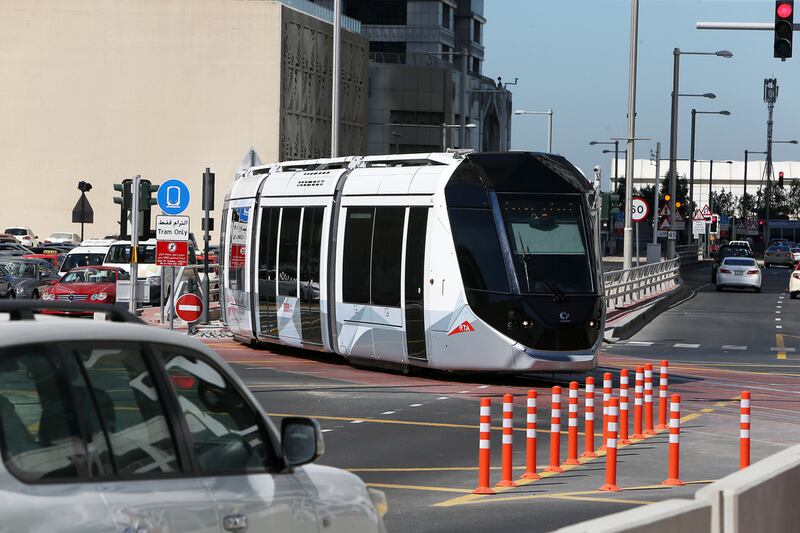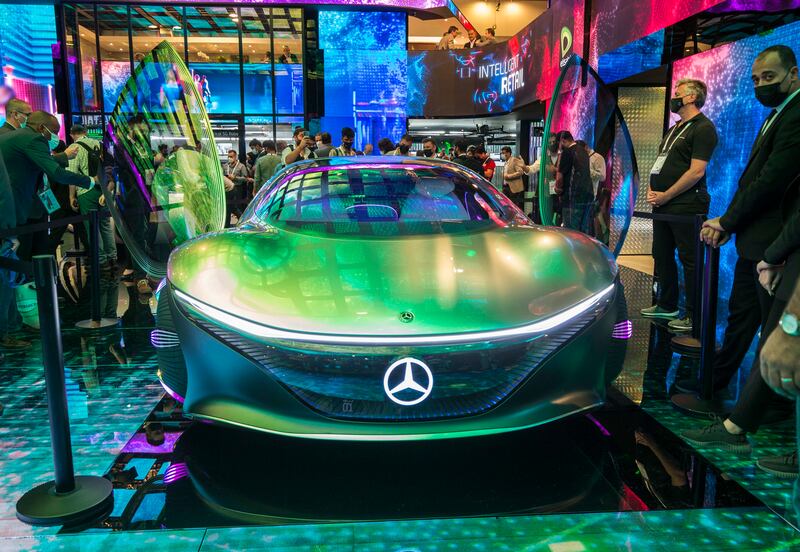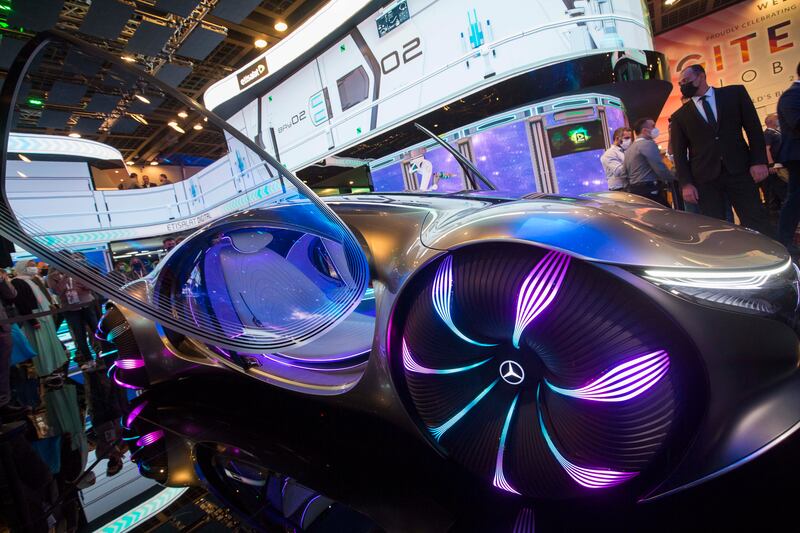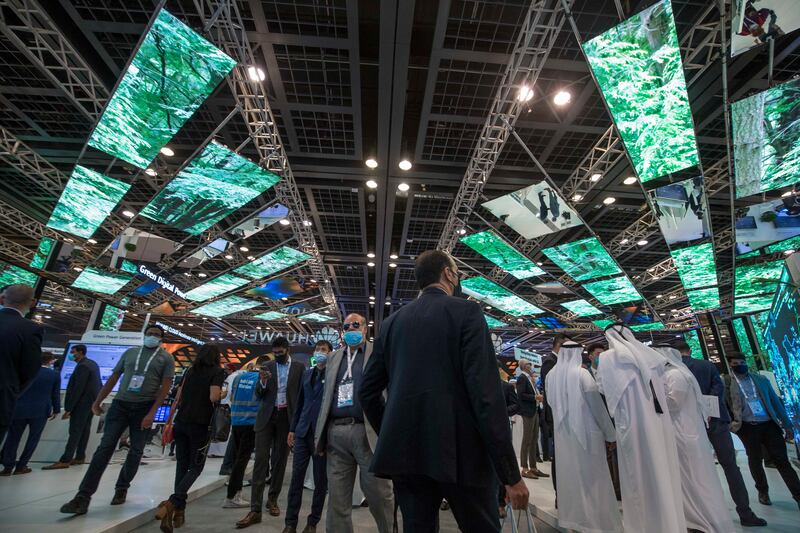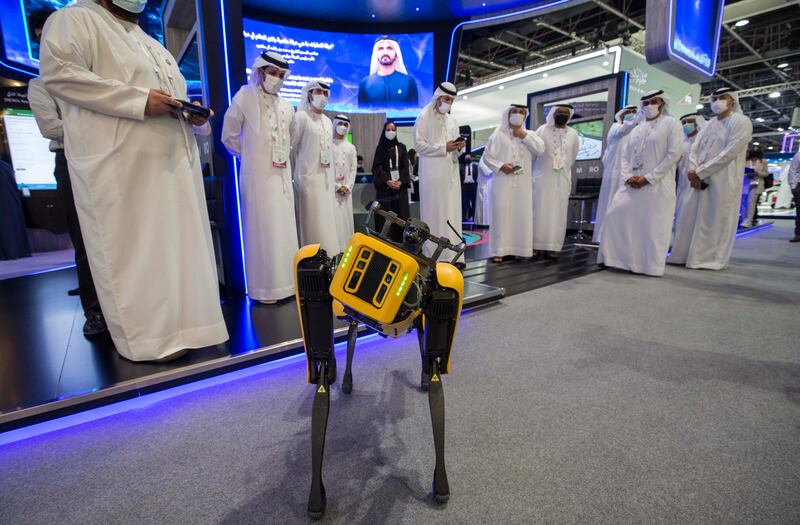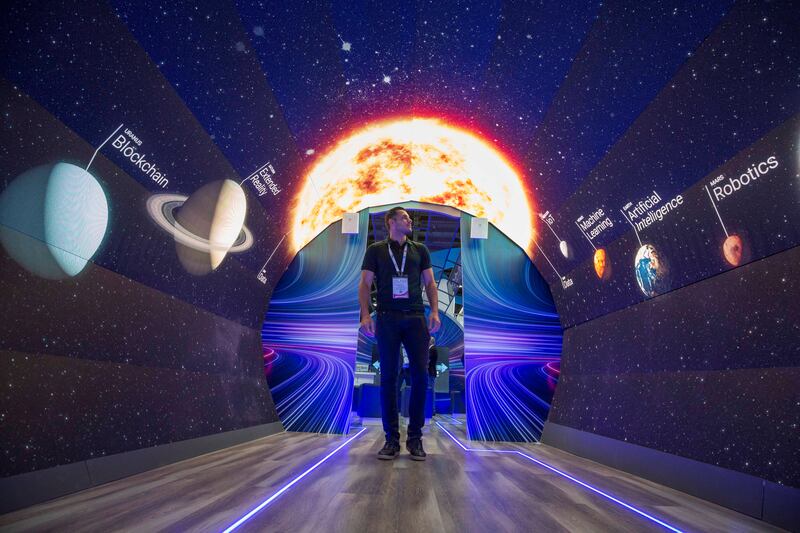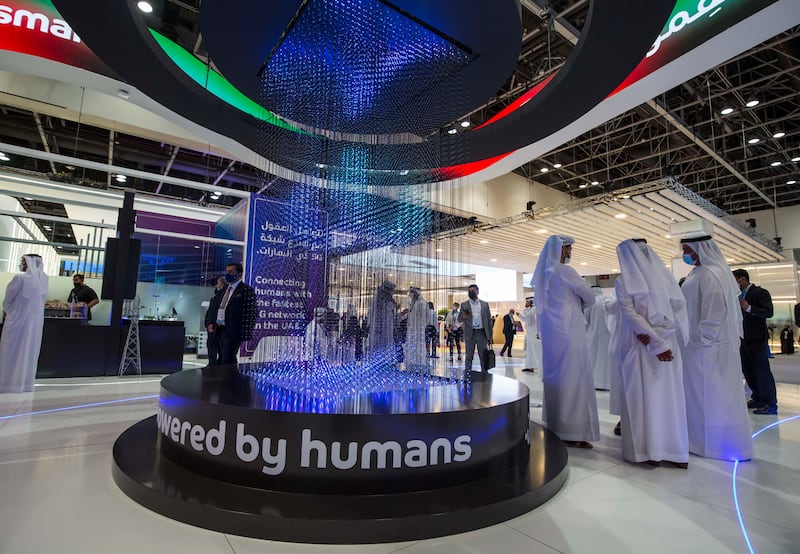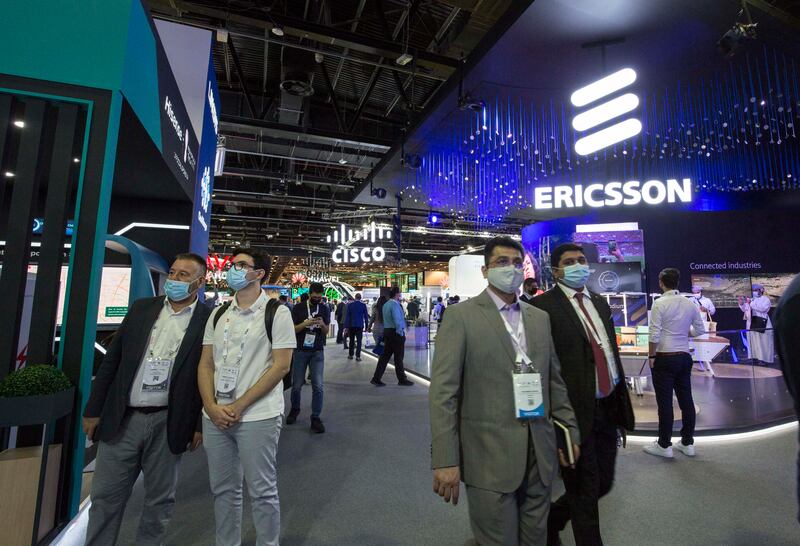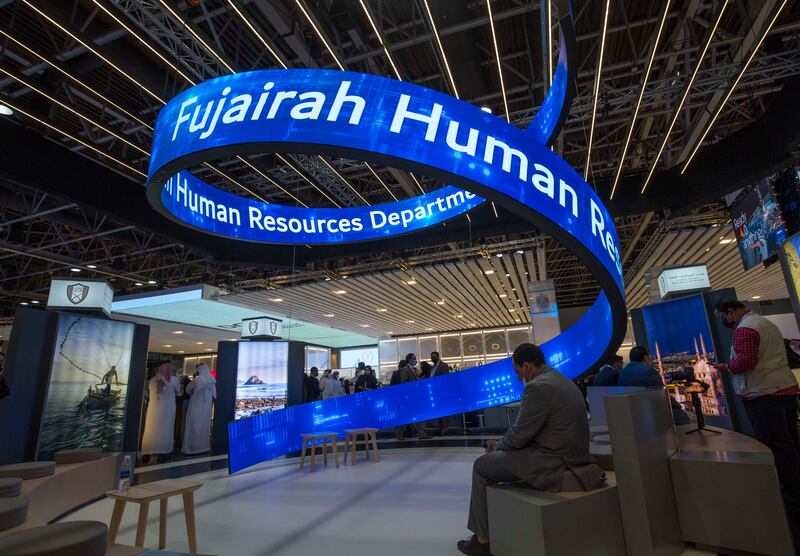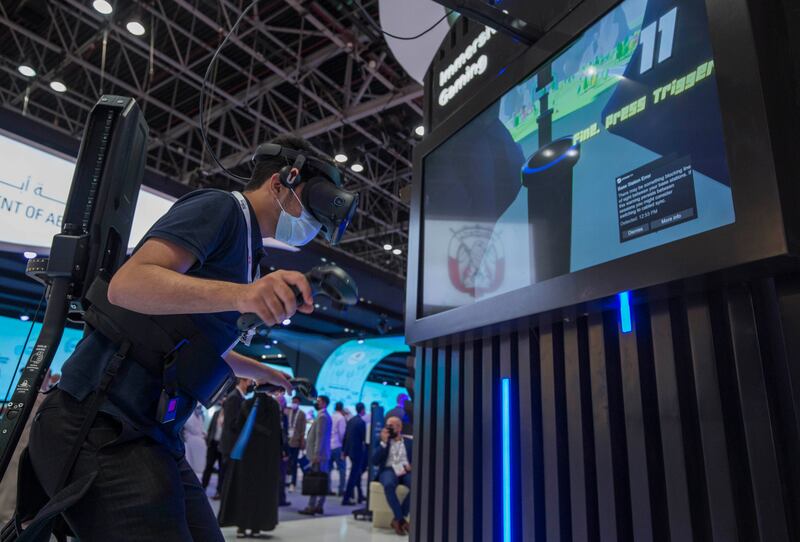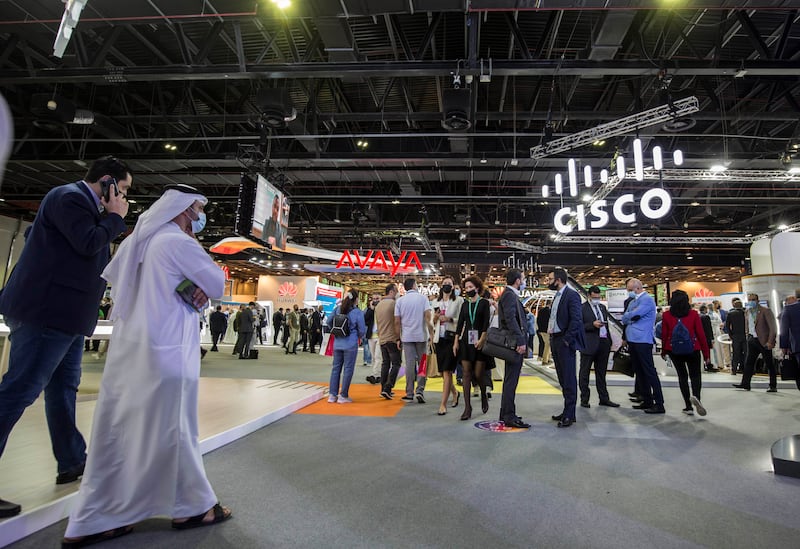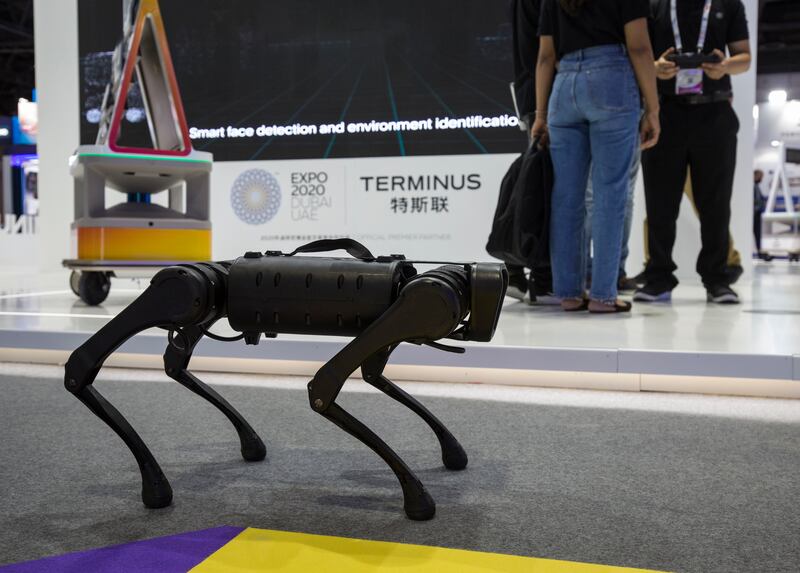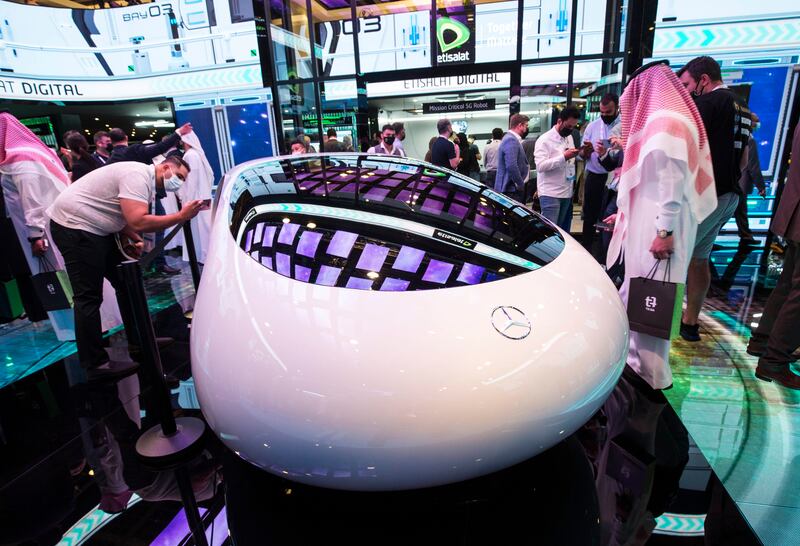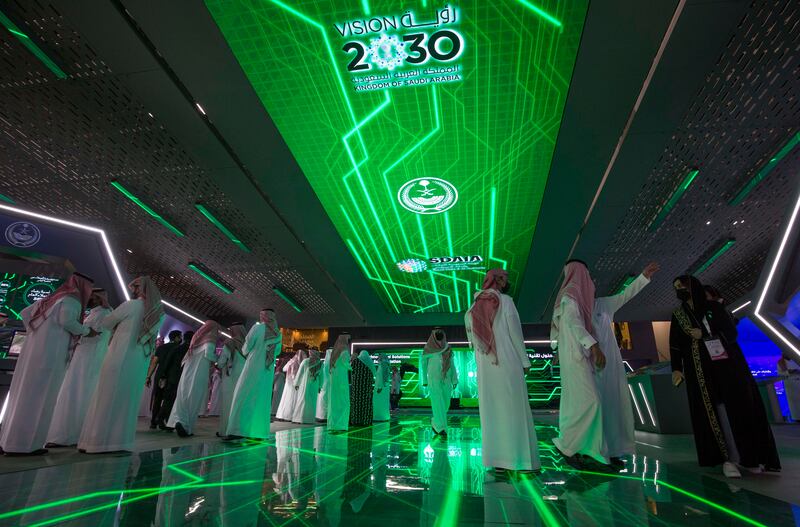A new partnership with Chinese retail company Alibaba will help the Roads and Transport Authority to monitor passenger movements and improve public transport systems.
The authority will use the online shopping company’s artificial intelligence platform to help develop Dubai’s expanding public transport system.
An agreement was signed at the Dubai World Congress for Self Driving Transport on Wednesday.
Data collection will begin with bus users and then be extended to include taxis and "last-mile" mobility solutions such as e-scooters and bikes.
“Alibaba already has a sophisticated platform specifically for mobility and transport,” said Ahmed Bahrozyan, head of the public transport agency at the authority.
“We want to capture as much data from people and passenger movements to help us plan and respond to the needs of commuters in the city. It is very promising technology.”
Data collection and Alibaba’s AI software will tell the authority where people need stations and bus stops by monitoring the flow of passengers.
The deal came after Dubai put in motion its 2040 Urban Plan, which predicts that the population will rise from 3.3 million to 5.8 million in 20 years.
Driverless cars allowed on Dubai roads by 2023
An agreement was also signed with logistics services company Evocargo to aid distribution within specified areas.
Although Evocargo's driverless delivery vehicles are not designed for open roads, they can be used at airports, manufacturing sites and ports.
It is the latest step in Dubai to increase the use of self-driving transport, with 25 per cent of all journeys expected to be self-driving by 2030.
In April, the authority signed an agreement with US company Cruise to introduce self-driving taxis in Dubai by 2023.
Cruise Origin taxis operate without a driver and they don't have a steering wheel. The 15-year agreement will start small before being expanded to eventually include thousands of taxis in Dubai.
“As a government, we must issue regulations that allow these vehicles to be used,” said Mr Bahrozyan.
“By 2023 these vehicles will be allowed to operate on the street. We can develop these regulations relatively quickly, it is why these companies want to work with us.
“We can already conduct full trials on roads; the next step is for actual commercial operations and we are at quite an advanced stage with all the authorities. I expect it to be in place by next year.”
China and Russia win self-driving delivery competition
During the conference, Chinese company Neolix and Yandex from Russia were declared joint winners of a year-long competition to design delivery robots for use in the city.
The competition, which was backed by the authority, called on private enterprises and universities to develop autonomous logistics solutions.
Entries were tested at Dubai Silicon Oasis under different weather to assess how they navigate obstacles and road obstructions.
The Neolix bot is a vending machine on wheels that can also deliver goods. It won the industry pioneers category.
Neolix machines are already widely used in Beijing and Shanghai, but the first driverless delivery vehicles are now being used by Noon in the Dubai Mall Fountains area.
Another vehicle will be used at the Rochester Institute of Technology in Dubai from January.
“Neolix has three functions – retail as is being done by Noon, as a food delivery bot as it can heat and cool food and also for security patrols,” said Jason Wang, Neolix's country manager.
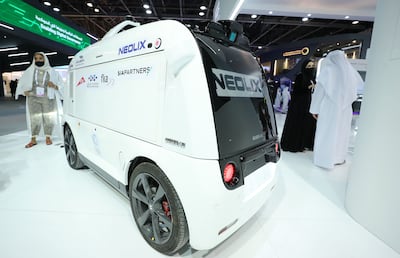
“They have been very successful in China. The car is surrounded by sensors and has an auto-braking system.
“It takes about three to four hours for a full charge and it can operated for up to 10 hours.
“It has a maximum speed of 55 kilometres per hour but it is limited to around 20kph, and it can travel as far as 150km.”
Dubai’s autonomous strategy aims to slash transport costs by Dh900 million a year and save Dh1.5 billion annually by reducing environmental pollution by 12 per cent.
Speaking at the event, Sebastian Thrun, Stanford University professor, founder of Google X and chief executive of drone delivery company Kittyhawk, said Dubai was leading the way in autonomous transport.
“It is exciting to see the RTA in Dubai open the regulatory pathways to adopt this technology for the benefit of people,” he said.
“Traffic is a journey and it evolves through technologists and regulators. There is nothing more important to a growing an economy than transport.”
